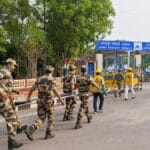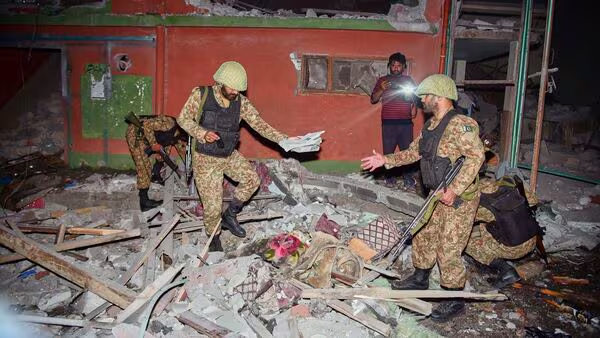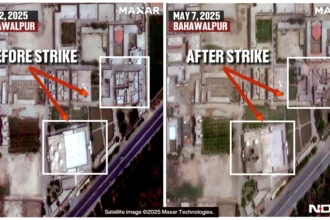Operation Sindoor: It was early morning in New Delhi when the Indian government decided to flip the script.
The world had seen enough of India issuing firm-worded condemnations after every terror attack, only to go silent days later. But May 21, 2025, marked a different kind of morning. This time, India wasn’t going to just speak. It was going to be heard—loudly and clearly—across the world.
A New Diplomacy, A New Tone
They’re calling it Operation Sindoor, but not because it’s quiet and symbolic like the vermillion it’s named after. No, this operation is blazing red with intent. It’s India’s sweeping global outreach mission to expose what it calls “Pakistan-sponsored terrorism” and to reset the rules of engagement in the region.
The move comes in the wake of the brutal Pahalgam terror attack—a grim reminder of how old ghosts still haunt the peace of Kashmir. After retaliatory military action under the same operation’s name, India is now waging a new kind of war. Not with bombs or boots—but with facts, files, and diplomacy.
Two parliamentary delegations—one led by MP Sanjay Jha to Japan, the other by MP Shrikant Shinde to the UAE—set off as the sun rose. They’re not alone. Five more delegations are gearing up to visit 25 countries over the next few weeks. Countries that matter. Countries whose voices ripple through global policy forums and whose support can tilt international opinion.
What Changed?
A lot, actually. But one phrase stood out during the briefing held by Foreign Secretary Vikram Misri: “This is India’s new normal.”
Let that sink in.
Misri wasn’t just reading from a script. He was drawing a line in the sand. “India seeks peace,” he told the media, “but it will not hesitate to respond with precision and strength when its soil is violated.”
No euphemisms. No vagueness. India, it seems, is done playing it soft.

Not Just Another Outreach
Let’s be real—diplomatic tours happen all the time. MPs fly out, speak nice things, sip coffee, pose for photos, and fly back. But Operation Sindoor isn’t your typical goodwill PR.
What’s different? For starters, each delegation has been carefully briefed with dossiers, evidence, timelines, and strategic talking points. The goal is to make partner nations understand why India chose to pause parts of the Indus Waters Treaty—an agreement that’s been the backbone of Indo-Pak water sharing since 1960.
That pause, announced just days ago, wasn’t an empty threat. It was a symbol—India signaling that it’s ready to question even the most sacred pacts if peace isn’t respected.
One Indian diplomat, speaking on condition of anonymity, said, “This is not a move against the people of Pakistan. It’s about calling out a system that allows terror groups to fester and spill blood across our borders. The world needs to hear our side.”
From Borders to Briefings
The military phase of Operation Sindoor began earlier in May with what insiders described as “targeted strikes” against terror camps in Pakistan-administered territories. The operation was deliberately measured—no military bases, no escalation, no civilian targets. Just direct hits on terror networks.
“We acted like surgeons, not soldiers,” Defence Minister Rajnath Singh told a rally in Lucknow. “Our forces cut out the cancer without touching the healthy tissue.”
It’s a strong metaphor—and one that now travels with these delegations.
In Japan, Sanjay Jha’s team is expected to hold high-level meetings with national security officials and parliamentarians. The agenda? Building a narrative that aligns India’s security concerns with the broader global fight against terrorism.
Meanwhile, in the UAE—home to a large Indian diaspora and an increasingly important geopolitical player—Shrikant Shinde’s delegation will focus on driving home how this isn’t just a South Asia issue. It’s a global threat.
Beyond Government Halls
What makes this effort feel different is that it’s not just confined to embassies and meeting rooms. There’s a real push to tell India’s story directly to citizens and opinion-makers in these countries. Think universities, think think tanks, think media roundtables.
That matters.
Because when a young student in Tokyo or a journalist in Dubai hears about the Pahalgam tragedy, they don’t just see numbers and names. They hear the anguish of a nation that’s tired of playing victim.
And perhaps, that’s the core of Operation Sindoor.
It’s India saying, “We won’t be reduced to a statistic in your foreign policy journal. We want justice, and we’ll fight for it—not just on our soil, but on the world stage.”
The Global Stakes
The question on everyone’s mind: Will it work?
There’s reason to be hopeful. India’s global reputation is stronger than it’s ever been. Its economy is growing. Its tech sector is respected. Its cultural influence—from Bollywood to yoga—is undeniable. When India talks today, people listen.
But will they act?
That depends. The world is not always fair. Strategic interests often outweigh moral arguments. But by showing transparency, restraint, and resolve, India might just shift the scales.
As one retired diplomat put it, “Even if we don’t see immediate sanctions or statements, we will have planted seeds. And when the next attack happens, the world will remember who lit the warning beacon first.”
What Comes Next?
This isn’t a one-off mission. Operation Sindoor’s diplomatic phase is just beginning. There’s chatter of a special international summit on counterterrorism led by India. Think-tank collaborations are in the pipeline. A digital campaign may also launch, targeting influencers and journalists globally.
This is India rewriting its foreign policy playbook—and for once, it’s doing so with its chest out, not bowed down.
It’s not about warmongering. It’s about saying, “We’re done begging for empathy. We’re here to assert truth—with honor, with proof, and with purpose.”
And that might just be the boldest move of all.
For more updates and other exciting news, visit our website now!
















